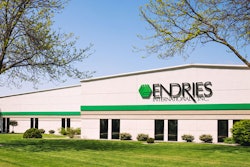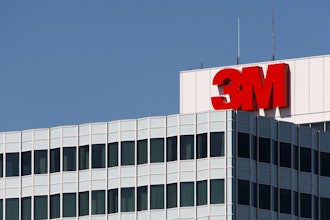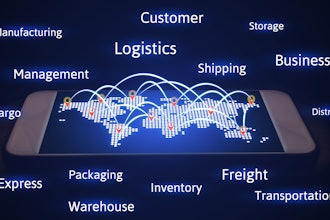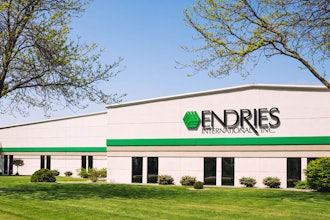For many distributors and manufacturers, the expense of payment processing is an accepted cost of doing business. And when looking to reduce costs, most tend to overlook the biggest component of fees associated with processing payment transactions—card Interchange. By negotiating with their payment processor for a reduced rate, businesses typically feel they are doing all they can to keep their costs low. However, what most do not realize is that this approach addresses only a small 10% of the total payment processing cost. The real value can be found in managing the entire payment processing chain, which can tack on up to 40% of their total expense.
The landscape of payment processing is one that is extremely complex and nearly impossible for a company to navigate alone. To significantly increase sales and decrease costs, companies must take the time to educate themselves on the payment processing industry and learn what they can do to transform how they handle transactions.
Automation
A large majority of businesses use very basic software applications or stand-alone terminals to send transactions and process their payments. However, without the right data and management of those transactions, they downgrade and end up costing their business up to 40% more. To manage rising costs, it is essential for companies to automate the process. Automated solutions manage the full lifecycle of a transaction and work to control 100% of the total cost associated with a single payment transaction through the process of transaction management. By using an intelligent tool, companies can see huge improvements in profit margins.
Interchange Optimization
Interchange fees represent the largest portion of a merchant's total fees for processing a single transaction and proper management of these fees is the most critical component to reducing transaction costs. There are hundreds of fees that can be assessed based on each transaction and industry type. While merchants know these fees exist, many have no clue how or why they are assessed or more importantly, how to reduce them each time they process a payment. Businesses spend significant time trying to negotiate reduced fees but often hit a roadblock with payment processors not willing to lower rates beyond a point.
Since Interchange rates are non-negotiable, distributors and manufacturers can minimize costs by improving qualification rates using an intelligent, cloud-based solution. Interchange optimization is one of the most effective ways to save businesses major cash. However, this is a process that cannot be achieved without an intelligent solution in place. Automated technology takes the intricacy of Interchange fees out of the equation and gives merchants an easy-to-use solution that communicates virtually with all parties—the merchant, the acquiring bank, and the payment processor—to deliver noticeable cost savings. A comprehensive processing solution will route each transaction through the least cost method by identifying the type of payment being used and automatically recognizing the most cost effective way to process the payment to ensure that businesses get lowest rate every time.
Compliance
Credit card compliance is another complex issue that all distributors and manufacturers face today. Each year, businesses spend huge sums of money to create internal processes and systems that meet the necessary requirements of Payment Card Industry Data Security Standard (PCI-DSS). These elaborate set of rules ensure companies are compliant with strict guidelines for reducing the risk of exposure by securing cardholder data. A potential breach can be extremely costly for any business. In fact, independent research firm—The Ponemon Institute—has estimated that companies spend more than $277.00 for every card that is compromised when fraudulent activity occurs. Automating payment processing functions can help businesses significantly can reduce the burden of PCI-DSS compliance and improve data security by encrypting and tokenizing sensitive data rendering it useless to criminals. Intelligent payment processing solutions minimize the danger associated with transmitting sensitive data through a variety of payment channels to help reduce costs.
Data Encryption and Tokenization
There are two critical features that businesses need to ensure are present when selecting an automated technology—end-to-end encryption and tokenization. End-to-end encryption ensures that sensitive card data is protected throughout the entire lifecycle of an electronic payment transaction. From the first swipe of the card, while in transit, all the way to the payment processor—data is fully secured mitigating the risk of fraud. Tokenization is the process of replacing sensitive data with unique identification symbols that retain all the essential information about the data without compromising its security. This is an essential component for significantly reducing the risk of exposure. The process makes it extremely difficult for hackers to access any cardholder data and significantly mitigates costly fraudulent activity both internally and externally. Tokenization also gives merchants the ability to securely store payment information in order to safely handle repeat and recurring sales.
Purchasing Cards
Credit card transactions fit into one of three different categories: Level I, Level II, or Level III. Level III processing requires merchants to enter very detailed data in order to process transactions on these cards. For many merchants in a B2B sales environment, Level III processing can be extremely beneficial by permitting customers to pay for goods and services with purchasing cards at a lower rate of interchange. In fact, the rate at which businesses are using purchasing cards is rapidly increasing year after year. VISA estimates a 56% growth rate in purchasing card spending between 2011 and 2016 for businesses in the corporate sector.
The detailed data required for each transaction made on a purchasing card enables processors to accelerate payments made on goods and services. For transactions made on a purchasing card, Mastercard has reported a 70% (8.5 day) reduction in the time elapsed from the placement of an order to the date the good was received. In addition, the amount of detailed information required for each transaction allows companies to take advantage of much lower processing rates and helps to save valuable resources. However, level III is not a process that merchants can manage without proper technology for entering the required information. A comprehensive payment solution will give companies the ability to process payments on commercial, business, and corporate purchasing cards making it easy for them to include all necessary data to help improve qualifying rates and mitigate unnecessary downgrades.
Electronic Payments
In today’s world, electronic payments are one of the most efficient and effective ways for businesses to get paid on time and often get paid immediately. Electronic payments can significantly improve the speed at which invoices are paid and also enhance the customer experience. By providing multiple electronic payment options, customers are able to save on printing, signing, and mailing checks and merchants are able to improve record keeping and reconciliation.
Making the Transition
Automated payment processing solutions provide businesses with numerous benefits that help to improve profit margins. Merchants who take the time to research the payment processing solutions that fit their individual business requirements will be rewarded for their efforts with increased sales, lower costs, and improved customer retention. By properly managing all aspects of a single payment transaction and streamlining the payment experience, distributors and manufacturers can transform their back office and maximize cash flow.
CenPOS is a merchant-centric, end-to-end payments engine that drives enterprise-class solutions for businesses, saving them time and money, while improving their customer engagement. CenPOS’ secure, cloud-based solution optimizes acceptance for all payment types across multiple channels without disrupting the merchant’s banking relationships. For additional information please call 877.630.7960 or visit www.cenpos.com.






















